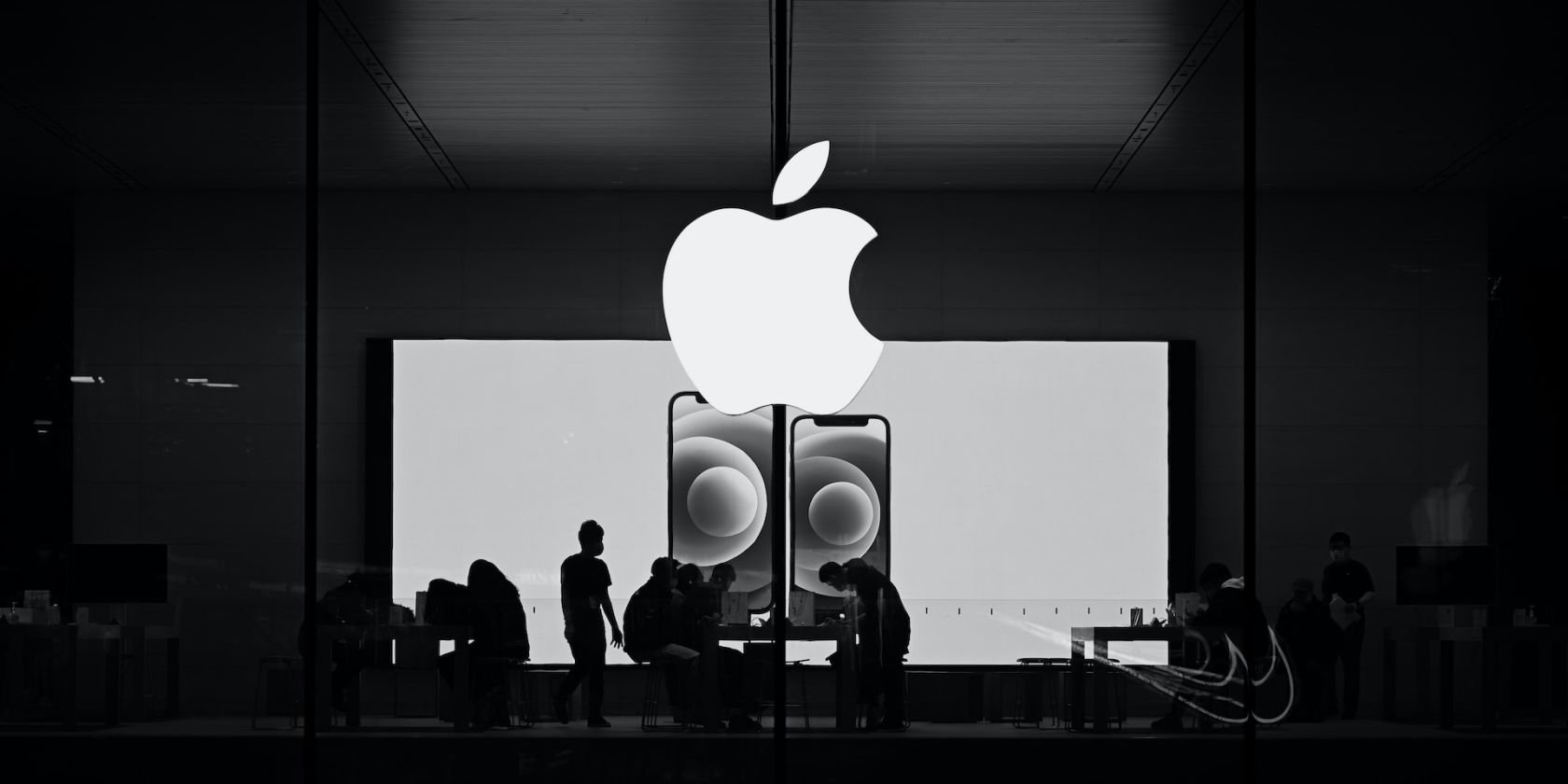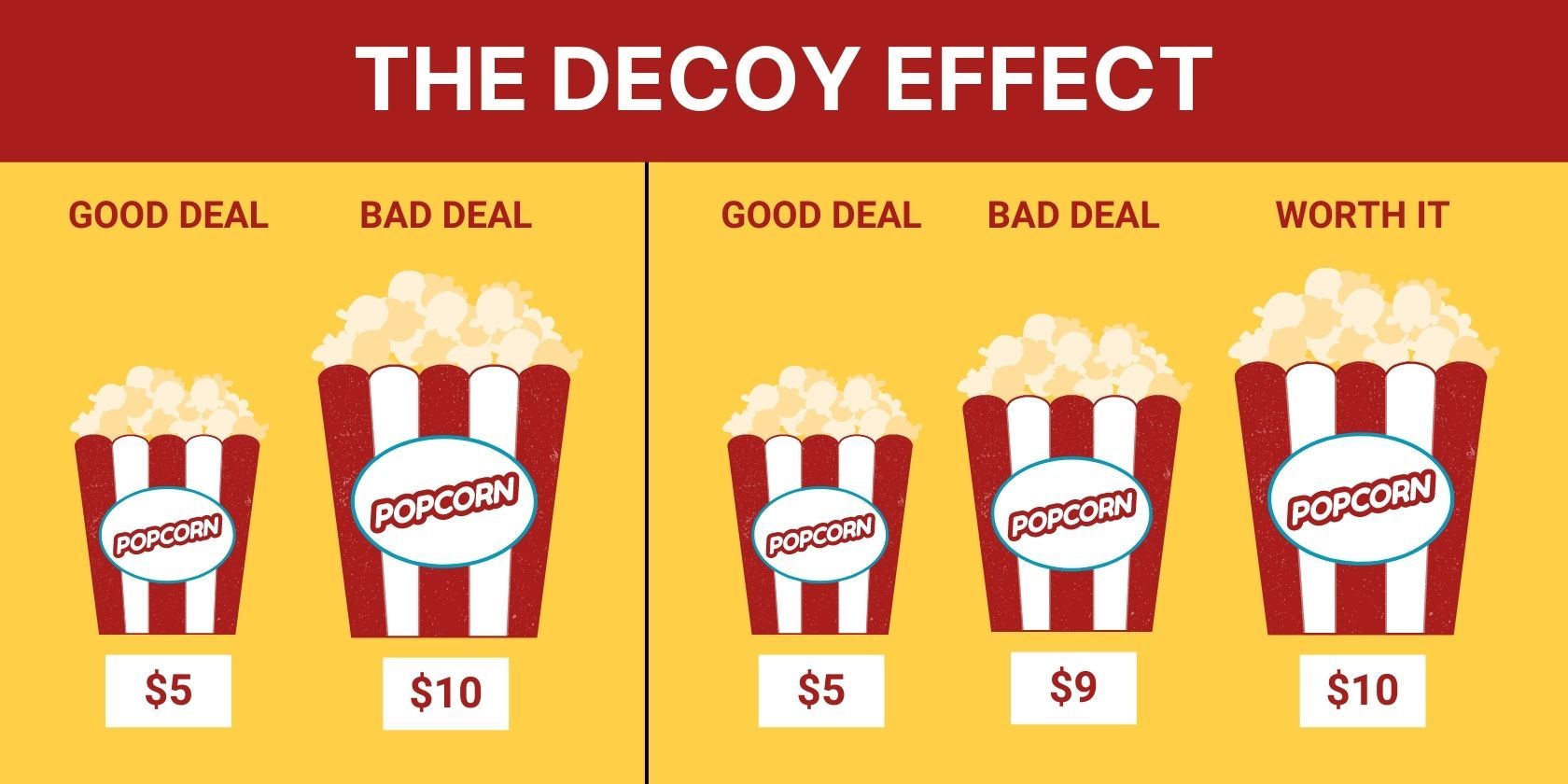Apple is good at many things, especially marketing. While its ads, promos, and launch events talk about new features, there are a bunch of subtle marketing tricks the company uses to make you spend more money than you intended without you realizing it.
One such trick is called the decoy effect. Let's learn what the decoy effect is, how Apple uses it to upsell you its more expensive products, and comment on whether premium Apple devices are actually worth it for most people.
What Is the Decoy Effect in Marketing?
The decoy effect is a very common marketing trick that sellers—from multinational corporations to street vendors—use to upsell you more expensive products as opposed to their cheaper variants.
In this strategy, the seller manipulates your buying preferences by adding a "decoy" to its range of products that's priced such that the more expensive variant feels like a better deal.
For example, let's say you're at the movies and given two options: a small bucket of popcorn for $5 or a large bucket for $10. In this case, the large bucket may seem overpriced.
But if we add a medium bucket of popcorn for $9, the large bucket instantly starts to look more reasonable because it's no longer being directly compared to the small bucket but rather the intentionally overpriced medium bucket.
This way, the negative sentiment previously associated with the large bucket is shifted to the medium bucket, i.e., the decoy. Although the small bucket is still worth it, a buyer would now be more willing to get the large bucket than before when there was no decoy.
Alternatively, there may be a slightly bigger extra large bucket for $15 which would also make the $10 large bucket seem more reasonable in comparison.
How Apple Tricks You Into Spending More
Now that you understand what the decoy effect is, let's see how Apple uses it to upsell iPhones. The current iPhone 14 series costs $799, $899, $999, and $1,099, respectively, for all the models. This seems fair at first glance, but each model leading up to the iPhone 14 Pro Max has properties similar to that of a decoy.
For instance, the standard iPhone 14 which starts at $799 has a 6.1-inch screen and a 3279mAh battery, which are rather small by today's standards. So, you decide to pick the $899 iPhone 14 Plus instead for its bigger 6.7-inch screen and 4323mAh battery.
However, you notice that by spending just $100 more, you can get the $999 iPhone 14 Pro which has a telephoto camera and the Dynamic Island cutout, but that's at the cost of going back to a 6.1-inch screen and a smaller 3200mAh battery.
So, finally, you pick the $1099 Pro Max model with no compromises. Although you only intended to spend $799 initially, you're now considering spending $300 more. Similar is the case when buying iPads, MacBooks, or pretty much any Apple product.
Apple is not the only company that uses the decoy effect. In 2020, Samsung tried to upsell buyers to get the $1,299 Galaxy Note 20 Ultra by using the base $999 Galaxy Note 20 as the decoy. The latter had a plastic body and weaker Gorilla Glass 5 protection that made it seem like a rip-off for its price, and the Note 20 Ultra seemed more reasonable.
In a vacuum, paying $1,299 for a phone is outrageous, but it feels slightly less when you "only have to pay $300 extra" to get the best of the best.
Is It Worth Paying Extra for Premium Apple Devices?
It depends on your individual needs, but paying extra for premium features doesn't make sense for most people. Going back to the iPhone 14 example, the telephoto camera and the Dynamic Island cutout on the iPhone 14 Pro are not essential features.
Most of the photos you shoot with your phone will only require the main camera anyway, so the telephoto isn't as important. The Dynamic Island isn't necessary either since it's basically a fancy replacement for the notification panel and doesn't change your user experience much.
Only Pay for What You Need
Tech companies use all sorts of tricks and techniques to part you from your hard-earned cash, and it's up to you to educate yourself to better spot them and avoid falling victim to them.
Always remember to pay only for what you actually need and not what the company wants you to think you need.



